
The Majestic Shores of Lake Superior
Lake Superior, the largest of the Great Lakes, is a breathtaking destination in Minnesota, United States. This expansive lake offers stunning natural beauty, with crystal-clear waters and rugged shoreline that stretches for miles. The lake's pristine beaches are perfect for a day of relaxation, while the surrounding forests provide ample opportunity for hiking and wildlife spotting. History buffs will appreciate the rich cultural heritage of the area, with numerous historical sites and museums that tell the story of the native Ojibwe people and the European settlers who followed. The lake's shipwrecks are a testament to its storied past, and visitors can explore these fascinating underwater relics through guided diving tours. Outdoor enthusiasts will find no shortage of activities to enjoy, from kayaking and canoeing to fishing and sailing. The lake's vast size means there's always a new adventure awaiting, whether it's a peaceful paddle along the shore or an exhilarating ride on the open water. In the winter, the area transforms into a snowy wonderland, perfect for ice fishing, snowshoeing, and even dog sledding. No visit to Lake Superior would be complete without experiencing the local cuisine. Freshly caught fish, wild berries, and locally sourced ingredients are staples of the region's culinary scene. Be sure to try the famous Lake Superior whitefish, a delicacy that is sure to delight your taste buds.
Local tips in Lake Superior
- Pack layers, as the weather can change quickly near the lake.
- Visit in the fall for stunning foliage and fewer crowds.
- Check out the Split Rock Lighthouse for panoramic views of the lake.
- Bring binoculars for bird watching, especially during migration seasons.
- Try the local smoked fish sold at roadside stands.
The Majestic Shores of Lake Superior
Lake Superior, the largest of the Great Lakes, is a breathtaking destination in Minnesota, United States. This expansive lake offers stunning natural beauty, with crystal-clear waters and rugged shoreline that stretches for miles. The lake's pristine beaches are perfect for a day of relaxation, while the surrounding forests provide ample opportunity for hiking and wildlife spotting. History buffs will appreciate the rich cultural heritage of the area, with numerous historical sites and museums that tell the story of the native Ojibwe people and the European settlers who followed. The lake's shipwrecks are a testament to its storied past, and visitors can explore these fascinating underwater relics through guided diving tours. Outdoor enthusiasts will find no shortage of activities to enjoy, from kayaking and canoeing to fishing and sailing. The lake's vast size means there's always a new adventure awaiting, whether it's a peaceful paddle along the shore or an exhilarating ride on the open water. In the winter, the area transforms into a snowy wonderland, perfect for ice fishing, snowshoeing, and even dog sledding. No visit to Lake Superior would be complete without experiencing the local cuisine. Freshly caught fish, wild berries, and locally sourced ingredients are staples of the region's culinary scene. Be sure to try the famous Lake Superior whitefish, a delicacy that is sure to delight your taste buds.
When is the best time to go to Lake Superior?
Unmissable attractions to see
Gooseberry Falls State Park
Discover the breathtaking beauty of Gooseberry Falls State Park, a must-visit destination for nature lovers and outdoor enthusiasts in Minnesota.
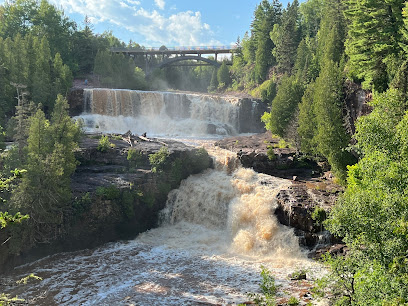
Split Rock Lighthouse
Discover the majestic Split Rock Lighthouse, where maritime history meets stunning views on the shores of Lake Superior.

Tettegouche State Park
Discover the natural beauty and adventure of Tettegouche State Park, where stunning landscapes meet diverse outdoor activities along Lake Superior's North Shore.
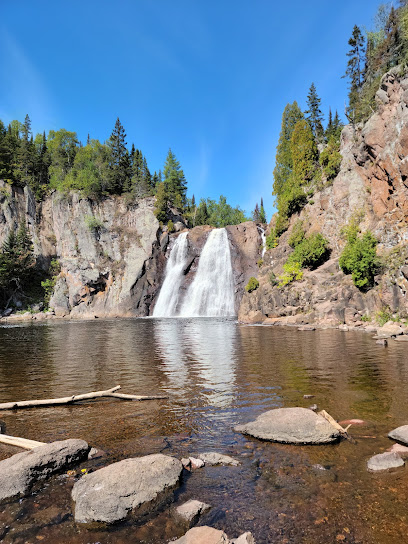
Presque Isle Park
Discover the breathtaking landscapes and serene beauty of Presque Isle Park in Marquette, Michigan, a perfect destination for nature lovers and outdoor enthusiasts.
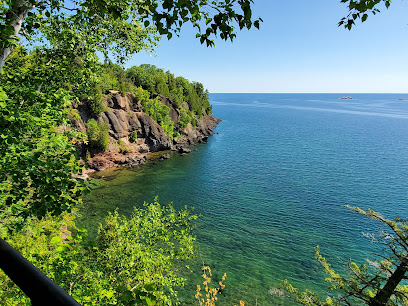
Glensheen Mansion
Experience the rich history and stunning architecture of Glensheen Mansion in Duluth, Minnesota, where beauty meets historical intrigue.
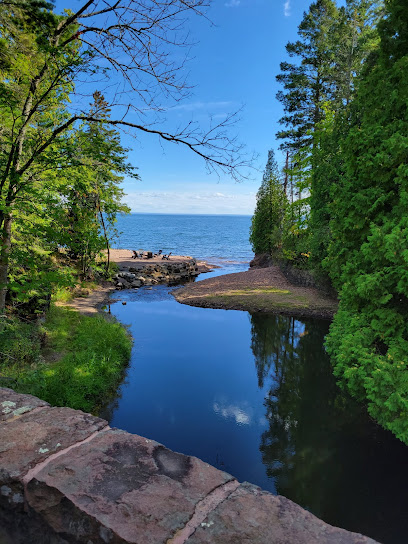
Aerial Lift Bridge
Explore the iconic Aerial Lift Bridge in Duluth, MN, a historic engineering marvel offering stunning views and a glimpse into the area's rich maritime heritage.
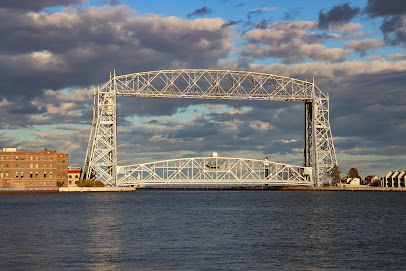
Enger Park
Discover the breathtaking views and beautiful gardens of Enger Park in Duluth, Minnesota, a must-visit for nature lovers and photography enthusiasts.
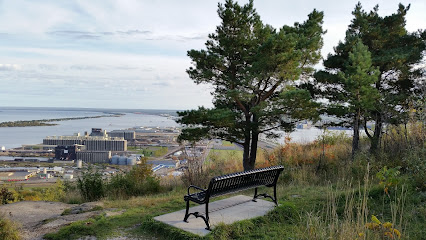
Leif Erikson Park
Discover the tranquil beauty and historical significance of Leif Erikson Park, a serene oasis on the shores of Lake Superior in Duluth, Minnesota.
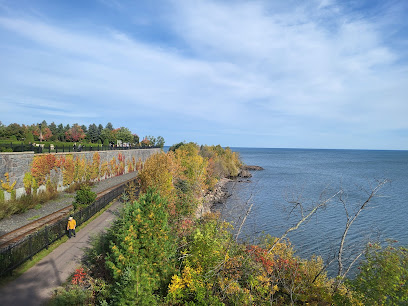
Lake Superior Maritime Visitor Center
Explore the rich maritime history of Lake Superior at the Visitor Center in Duluth, MN, where fascinating exhibits and stunning harbor views await.
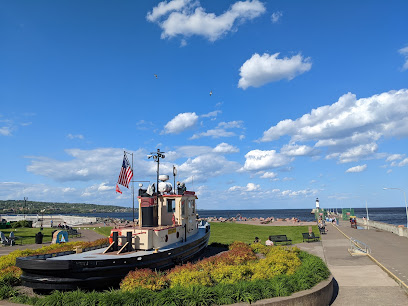
Grand Portage State Park
Discover the breathtaking landscapes of Grand Portage State Park, featuring stunning waterfalls, rich Ojibwe culture, and endless outdoor adventures.
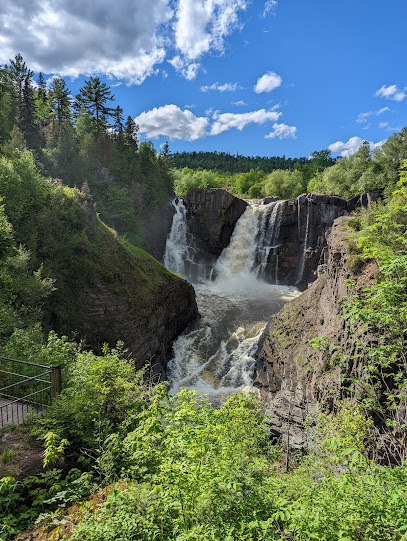
Park Point Recreation Area
Explore the scenic beauty and outdoor adventures at Park Point Recreation Area, a premier destination in Duluth, MN, perfect for tourists and nature lovers.
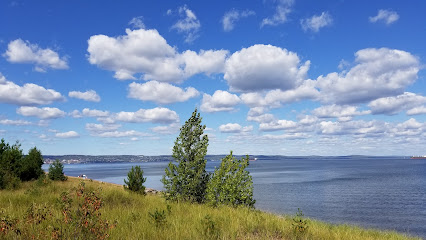
Duluth Rose Garden
Experience the enchanting beauty of the Duluth Rose Garden, a vibrant destination filled with thousands of blooming roses and breathtaking views of Lake Superior.
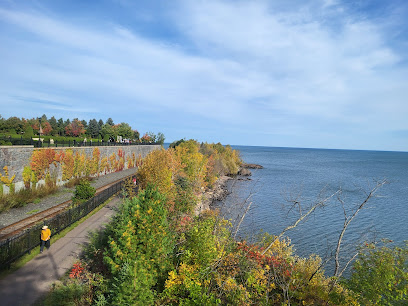
Kitchi Gammi Park
Explore Kitchi Gammi Park: A Natural Haven in Duluth's North Shore with Scenic Trails, Unique Rocks, and Stunning Views of Lake Superior.
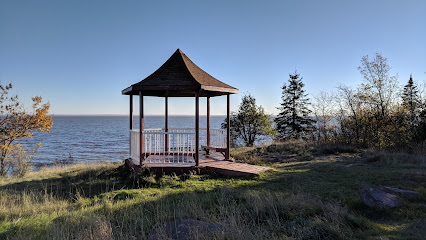
North Shore Scenic Railroad
Explore the North Shore Scenic Railroad for a breathtaking journey through Minnesota's history and stunning landscapes along Lake Superior.
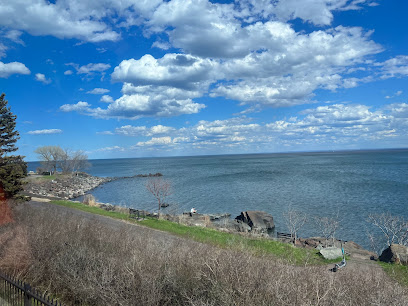
Judge C.R. Magney State Park
Explore the enchanting landscapes and captivating waterfalls of Judge C.R. Magney State Park in Minnesota, a haven for outdoor adventurers and nature lovers.
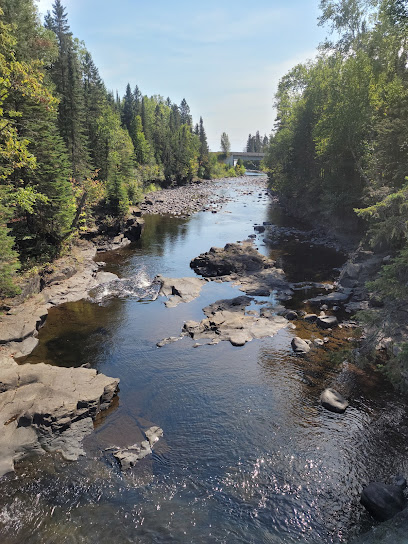
Essential places to dine
OMC Smokehouse
Savor authentic smoked meats at OMC Smokehouse in Duluth - where flavor meets tradition in a vibrant setting.
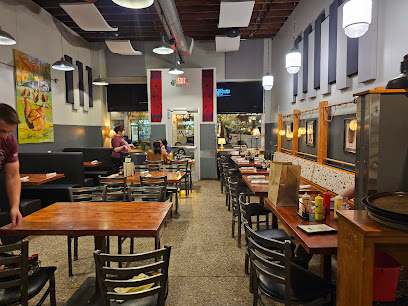
Rustic Inn Cafe
Discover Rustic Inn Cafe - A cozy spot for delicious breakfasts and homemade pies along Minnesota's stunning North Shore.
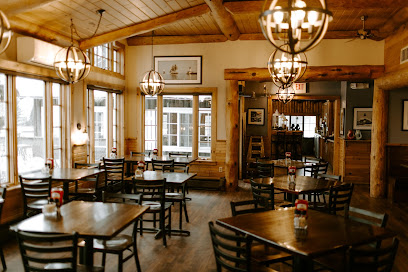
At Sara's Table Chester Creek Cafe
Experience delightful American cuisine amidst stunning views at At Sara's Table Chester Creek Cafe in Duluth, MN.
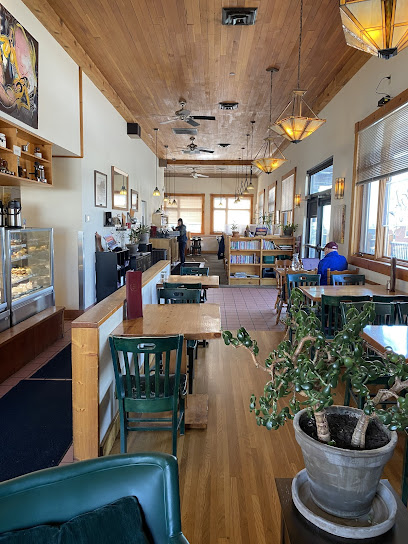
Va Bene
Experience authentic Italian cuisine at Va Bene with stunning views of Lake Superior – perfect for dining and events in Duluth.
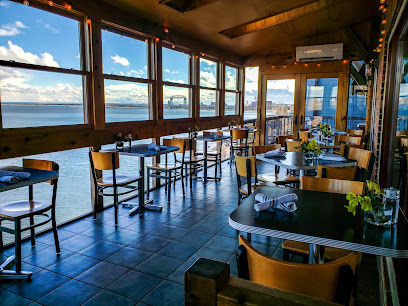
Sir Benedicts Tavern on the Lake
Discover Sir Benedicts Tavern on the Lake: A delightful fusion of American cuisine, live music, and breathtaking views of Lake Superior in Duluth.
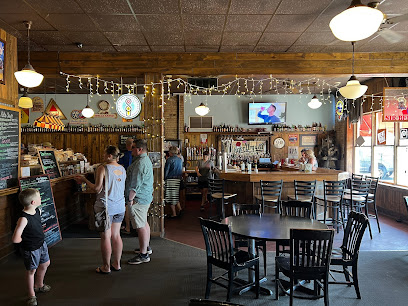
Pickwick Restaurant & Pub
Experience American cuisine at its finest at Pickwick Restaurant & Pub with stunning views of Lake Superior in Duluth.
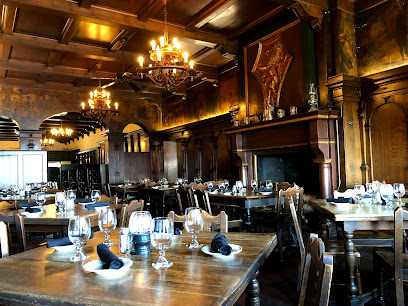
Angry Trout Cafe
Experience exquisite seafood and hearty breakfasts at Angry Trout Cafe with stunning views of Lake Superior in Grand Marais.
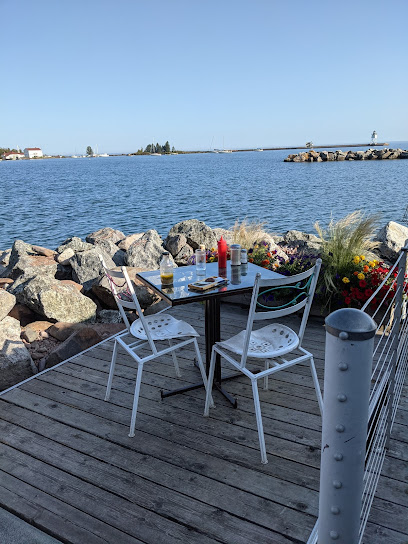
Black Woods Bar & Grill
Discover the heartwarming flavors of Black Woods Bar & Grill in Two Harbors - where great food meets Northern Minnesota charm.
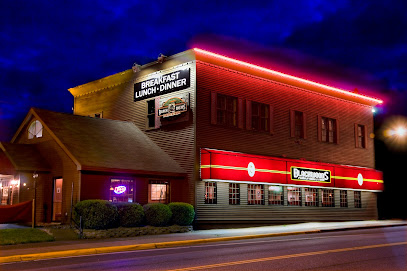
Northern Waters Smokehaus
Experience exquisite smoked delicacies at Northern Waters Smokehaus in Duluth – where culinary artistry meets breathtaking lakeside views.
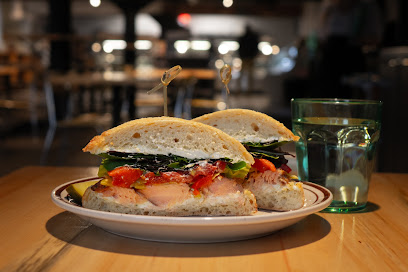
New Scenic Café
Experience breathtaking views and delightful local cuisine at New Scenic Café on Lake Superior's picturesque shore in Duluth, Minnesota.
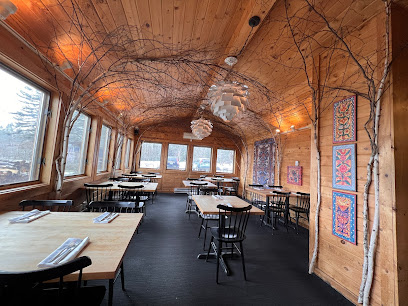
Northwoods Family Grille
Experience hearty American cuisine at Northwoods Family Grille—where delicious burgers meet family-friendly dining in Silver Bay.
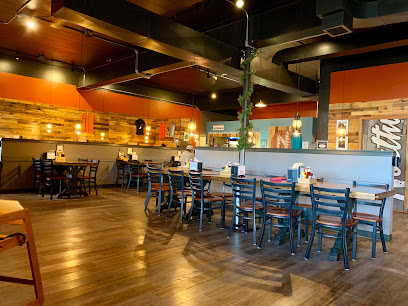
Buffalo House
Discover the best of American cuisine at Buffalo House in Duluth—where delicious food meets vibrant atmosphere!
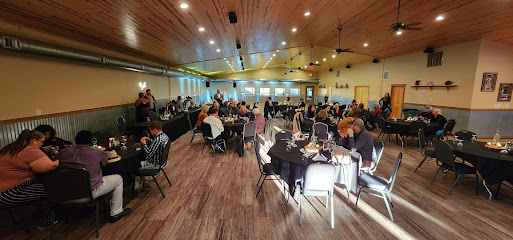
Cascade Restaurant & Pub
Discover Cascade Restaurant & Pub in Lutsen: A delightful fusion of American flavors with Irish charm against the backdrop of stunning Lake Superior views.
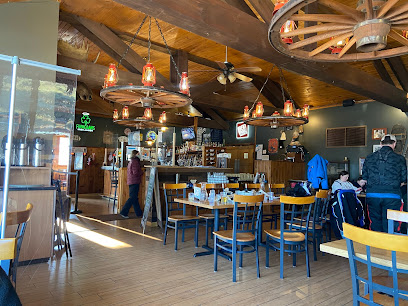
Bellisio's Italian Restaurant & Wine Bar
Savor exquisite Italian cuisine and fine wines at Bellisio's Restaurant & Wine Bar in Duluth's picturesque Canal Park.
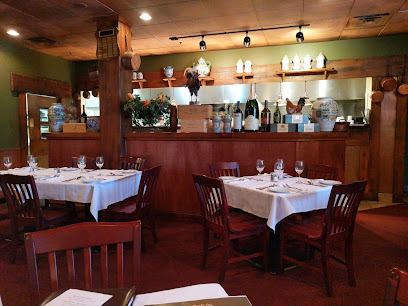
Lake Avenue Restaurant & Bar
Discover exquisite New American cuisine at Lake Avenue Restaurant & Bar with stunning views and local flavors in Duluth's Canal Park.
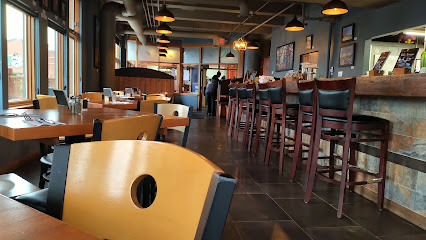
Markets, malls and hidden boutiques
Great! Lakes Candy Kitchen
Discover a world of sweetness at Great! Lakes Candy Kitchen, where handcrafted chocolates and nostalgic treats await in Knife River, Minnesota.
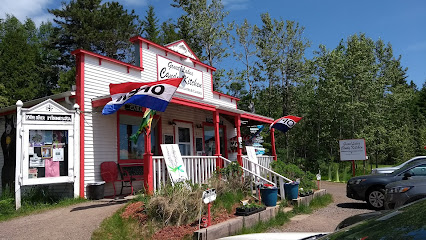
Beaver Bay Agate Shop
Explore the magical Beaver Bay Agate Shop, where stunning agates and unique jewelry pieces await in a gem-filled adventure.
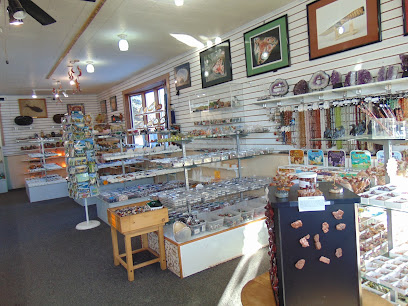
Lake Superior Trading Post
Explore the charm of Lake Superior Trading Post, your one-stop gift shop for outdoor gear, unique souvenirs, and local treasures in Grand Marais, MN.
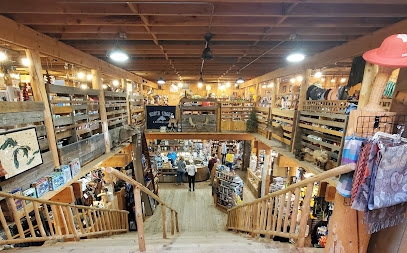
Father Time Antiques
Explore Father Time Antiques in Duluth, MN - a vintage paradise filled with unique treasures and rich history waiting to be discovered.
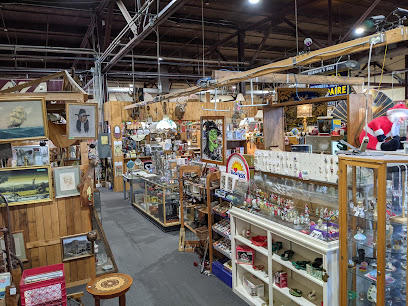
I Love Duluth
Explore I Love Duluth for unique souvenirs and local apparel reflecting the beauty of Lake Superior in Canal Park.
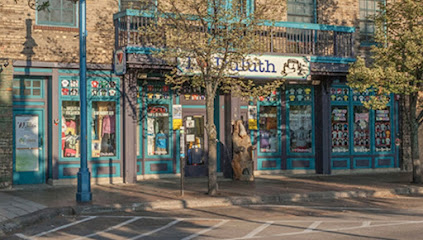
Global Village
Discover Unique Fashion and Art at Global Village in Duluth's Canal Park - A Must-Visit for Tourists!
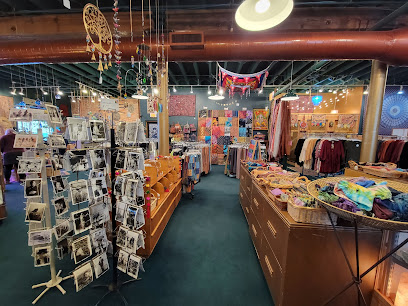
Namasté Gifts & Healing
Explore Namasté Gifts & Healing in Duluth - a unique gift shop offering crystals, wellness products, and handcrafted treasures for every traveler.
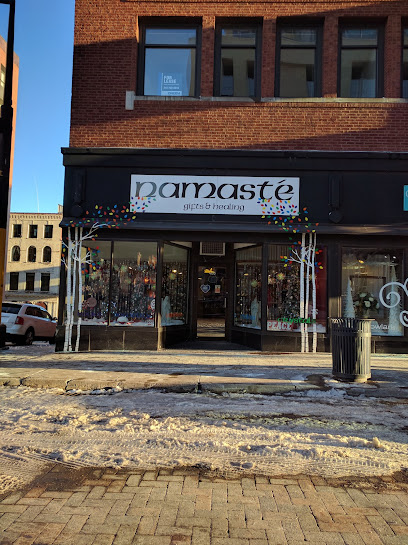
Two Loons Gallery and Boutique
Explore unique local artistry and handcrafted treasures at Two Loons Gallery and Boutique in Duluth, Minnesota.
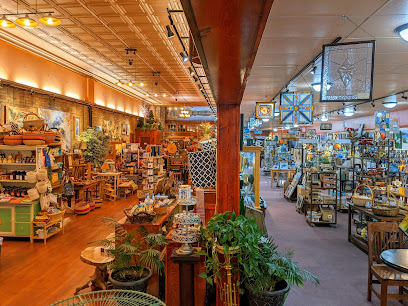
Duluth Gear Exchange
Explore Duluth Gear Exchange, the ultimate spot for outdoor gear, consignment, and repair services, catering to adventurers in Minnesota.
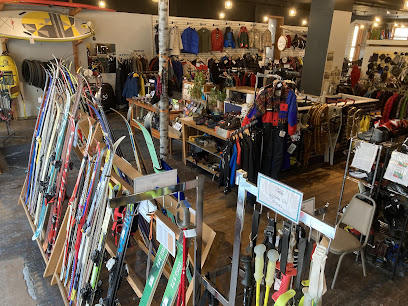
Weldon's Gift Shop
Discover unique souvenirs and local treasures at Weldon's Gift Shop in Two Harbors, Minnesota, the perfect stop for every traveler.
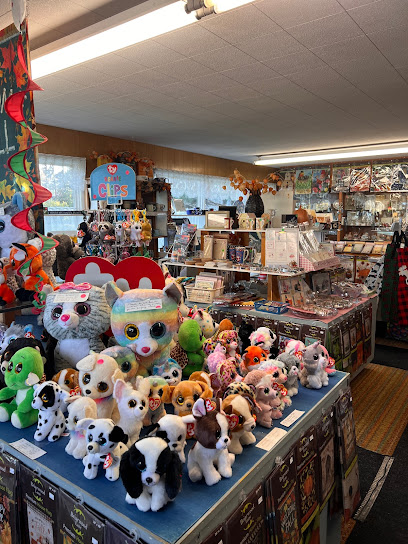
Flagship
Explore Flagship in Duluth for custom t-shirts and unique apparel inspired by Lake Superior's beauty and local culture.
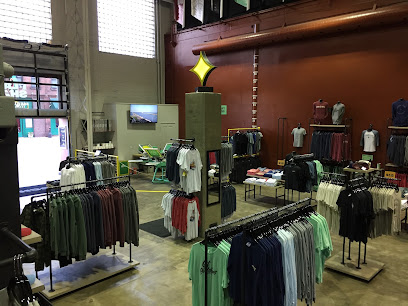
WatersEdge Trading Co
Discover unique gifts, outdoor gear, and stylish clothing at WatersEdge Trading Co in Tofte, Minnesota – a perfect stop on your North Shore adventure.
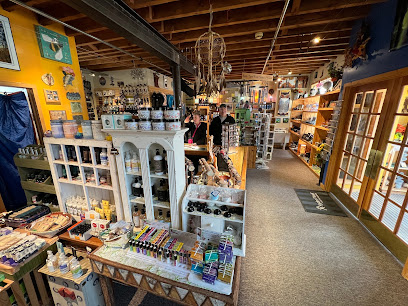
Northwoods Confections & Gifts
Explore Northwoods Confections & Gifts in Duluth for handmade chocolates, unique gifts, and a taste of local Minnesota craftsmanship.
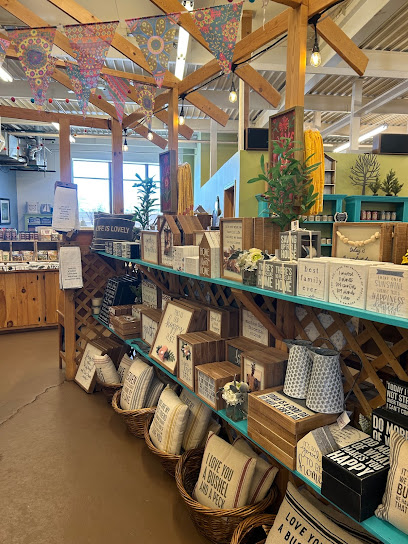
Antiques On Belknap
Uncover the charm of yesteryear at Antiques On Belknap, a vintage treasure trove in Superior, Wisconsin, brimming with unique collectibles and furniture.
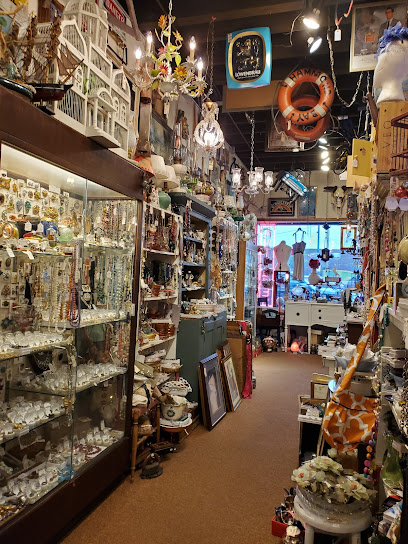
The Moon Market
Discover unique local crafts and gifts at The Moon Market, a charming shopping destination in Duluth, Minnesota, perfect for tourists seeking authentic souvenirs.
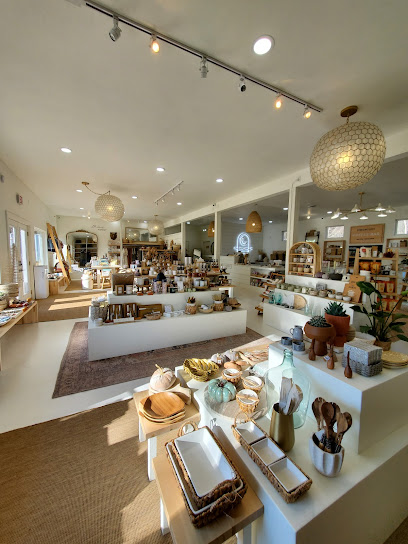
Essential bars & hidden hideouts
Sir Benedicts Tavern on the Lake
Discover the vibrant atmosphere and delicious American cuisine at Sir Benedicts Tavern on the Lake, a must-visit spot in Duluth, Minnesota.
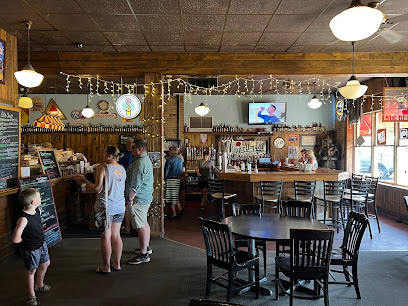
Pickwick Restaurant & Pub
Experience the essence of American cuisine at Pickwick Restaurant & Pub in Duluth, Minnesota – where great food meets a welcoming atmosphere.
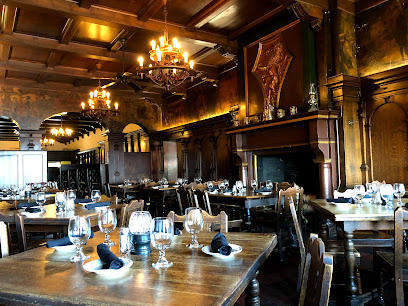
Vikre Distillery
Discover the art of craft cocktails and local spirits at Vikre Distillery in Duluth, Minnesota, where every sip tells a unique story.
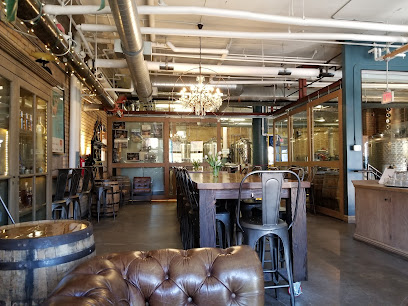
Fitger's Brewhouse
Experience the best of Duluth at Fitger's Brewhouse, where craft beer meets delicious American cuisine in a historic setting.
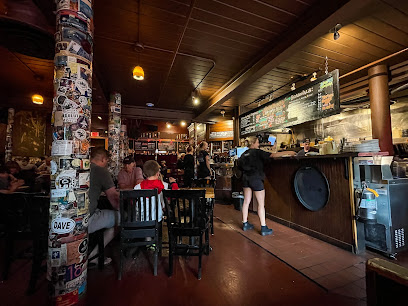
Bellisio's Italian Restaurant & Wine Bar
Experience the best of Italian cuisine and fine wines at Bellisio's Italian Restaurant & Wine Bar in Duluth's Canal Park.
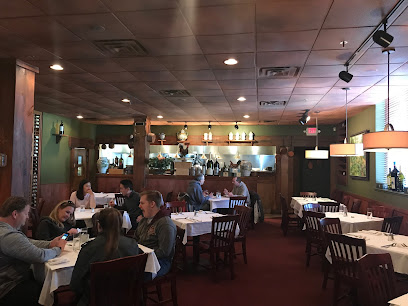
Lake Avenue Restaurant & Bar
Experience New American cuisine at Lake Avenue Restaurant & Bar in Duluth - where seasonal flavors meet stunning lake views.
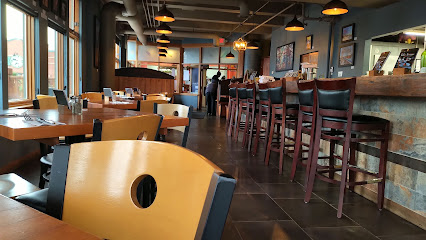
310 Pub
Experience the best of American grilling with stunning Lake Superior views at 310 Pub in Duluth's Canal Park.
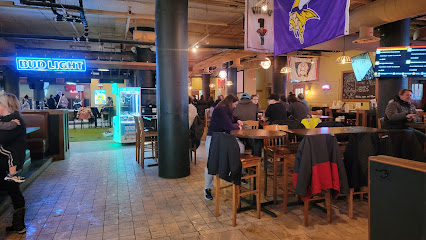
Choo Choo Bar & Grill
Discover the lively Choo Choo Bar & Grill in Superior, Wisconsin, where delicious food and a vibrant atmosphere await every visitor.
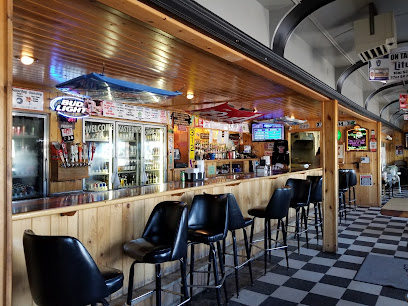
Black Water Lounge
Experience the vibrant nightlife of Duluth at Black Water Lounge, offering exquisite drinks, delectable bites, and a lively atmosphere.
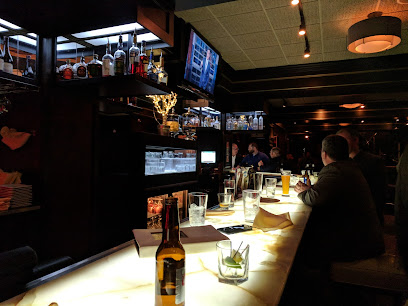
The Reef
Experience the vibrant nightlife at The Reef, Duluth's premier bar featuring karaoke, sports, and a lively arcade atmosphere.
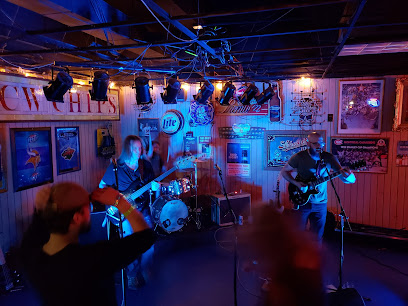
Dubh Linn Brew Pub
Discover the authentic taste of Ireland at Dubh Linn Brew Pub, where craft brews meet hearty cuisine in a lively atmosphere in Duluth, MN.
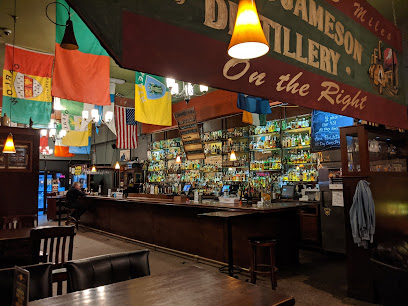
Cedar Lounge Earth Rider Brewery taproom
Experience the vibrant atmosphere of Cedar Lounge Earth Rider Brewery Taproom, where craft beer meets live music in Superior, Wisconsin.
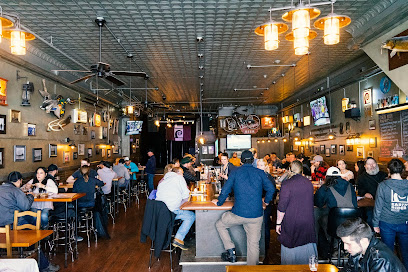
Spirit Room
Experience Superior's vibrant nightlife at the Spirit Room, your go-to cocktail bar for unique drinks and delightful tapas.
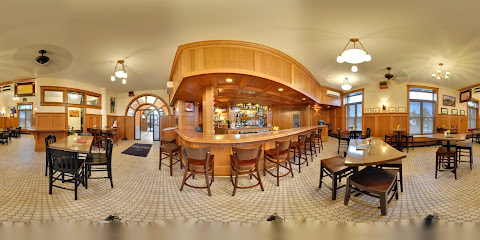
Carmody Irish Pub
Discover the authentic Irish pub experience at Carmody Irish Pub in Downtown Duluth, offering great food, drinks, and live entertainment.
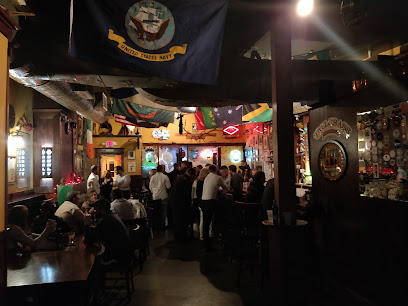
Local Phrases about Lake Superior
-
- HelloBoozhoo
[Boo-zhoo] - GoodbyeMiigwech
[Mee-gwetch] - YesEwen
[Ay-wen] - NoAaniin
[Ah-nee] - Please/You're welcomeMiigwech
[Mee-gwetch] - Thank youMiigwech
[Mee-gwetch] - Excuse me/SorryMiigwech
[Mee-gwetch] - How are you?Aaniin ezhi-niimi'idiwin?
[Ah-nee en-zhee-nee-mee-DEE-win] - Fine. And you?Aaniin. Mii dash? (masculine) / Mii gosha? (feminine)
[Ah-nee. Mee-dash / Mee-go-sha] - Do you speak English?Ozaawaa ina gikendaasii? (masculine) / Ozaawaa ina gikendaasii? (feminine)
[Oh-zah-wah ee-nah gee-ken-DAH-see] - I don't understandAaniin, a'aw ina gii-kinoomaaged?
[Ah-nee, ah-ah ee-nah gee-kee-noo-MAH-ged]
- HelloBoozhoo
-
- I'd like to see the menu, pleaseMiigwech, geget gidaa menu?
[Mee-gwetch, geh-get gee-dah menu] - I don't eat meatAaniin, a'aw geget giishpin?
[Ah-nee, ah-ah geh-get gee-shpin] - Cheers!Boozhoo!
[Boo-zhoo] - I would like to pay, pleaseMiigwech, geget gidaa biidaasiwin?
[Mee-gwetch, geh-get gee-dah bee-dah-see-win]
- I'd like to see the menu, pleaseMiigwech, geget gidaa menu?
-
- Help!Aapaji!
[Ah-pah-jee] - Go away!Awaaw
[Ah-wah] - Call the Police!Aaniin, ikwe weweniin?
[Ah-nee, eek-way way-way-neen] - Call a doctor!Aaniin, ikwe nandagikendaasii?
[Ah-nee, eek-way nahn-dah-gee-ken-DAH-see] - I'm lostAaniin, a'aw ndaw?
[Ah-nee, ah-ah ndahw] - I'm illAaniin, a'aw niwii?
[Ah-nee, ah-ah nee-wee]
- Help!Aapaji!
-
- I'd like to buy...Miigwech, geget gidaa...
[Mee-gwetch, geh-get gee-dah] - I'm just lookingAaniin, a'aw gikego?
[Ah-nee, ah-ah gee-KEH-goh] - How much is it?Beezhis?
[Bee-zhees] - That's too expensiveBaapiwi
[Bah-pee-wee] - Can you lower the price?Ozaawaa, a'aw giishpin?
[Oh-zah-wah, ah-ah gee-shpin]
- I'd like to buy...Miigwech, geget gidaa...
-
- What time is it?Miinawaa giizhigad?
[Mee-nah-wah gee-zhee-gahd] - It's one o'clockBakade
[Bah-kah-day] - Half past (10)Ningoji
[Nin-go-jee] - MorningBiindige
[Been-dih-geh] - AfternoonWaaban
[Wah-bahn] - EveningOzaawaan
[Oh-zah-wahn] - YesterdayAtay
[Ah-tay] - TodayBiizh
[Beezh] - TomorrowMii sa
[Mee-sah] - 1Niizh
[Neezh] - 2Ningwi
[Neen-gwee] - 3Niswi
[Neesh-wee] - 4Niiwin
[Nee-win] - 5Naanan
[Nah-nahn] - 6Ngodwaaswi
[Ngo-dwah-swee] - 7Ningodwaaswi
[Neen-go-dwah-swee] - 8Niiwinan
[Nee-win-ahn] - 9Zhaangaswi
[Zhaan-gah-swee] - 10Midaaswi
[Mee-dah-swee]
- What time is it?Miinawaa giizhigad?
-
- Where's a/the...?Aaniin, egaa...?
[Ah-nee, eh-gah] - What's the address?Aaniin, egaa zhichigewin?
[Ah-nee, eh-gah zhee-chee-geh-win] - Can you show me (on the map)?Ozaawaa, a'aw gidaa?
[Oh-zah-wah, ah-ah gee-dah] - When's the next (bus)?Aaniin, egaa ona?
[Ah-nee, eh-gah oh-nah] - A ticket (to ....)Miigwech, geget gidaa biidaasiwin (odii)?
[Mee-gwetch, geh-get gee-dah bee-dah-see-win (oh-dee)]
- Where's a/the...?Aaniin, egaa...?
History of Lake Superior
-
Long before European explorers arrived, the shores of Lake Superior were home to the Ojibwe (Chippewa) people. The lake, known to them as Gichigami, meaning 'Great Sea,' was integral to their way of life. They fished its waters, traveled its shores in birchbark canoes, and told stories and legends that have been passed down through generations. The Ojibwe's rich cultural traditions and deep connection to Lake Superior continue to shape the region to this day.
-
In the early 17th century, French explorers and fur traders were among the first Europeans to lay eyes on Lake Superior. Figures like Étienne Brûlé and Samuel de Champlain documented their journeys, paving the way for the fur trade to flourish. The French established trading posts and fostered relationships with indigenous tribes, exchanging goods like beaver pelts for European items. This era marked the beginning of significant European influence around Lake Superior.
-
The mid-19th century saw a surge in mining activity around Lake Superior, particularly in the Minnesota region. The discovery of rich iron ore deposits led to the establishment of mining communities and the emergence of Duluth as a key port city. Mining operations, such as those in the Mesabi Range, played a crucial role in the industrial growth of the United States. Lake Superior's waterways facilitated the transportation of these valuable resources to steel mills and industrial centers across the country.
-
Lake Superior's treacherous waters and unpredictable weather have claimed many ships throughout history. One of the most famous shipwrecks is that of the SS Edmund Fitzgerald, which sank in a storm in 1975, resulting in the loss of all 29 crew members. The lake's maritime history is commemorated through various museums and memorials, such as the Lake Superior Maritime Visitor Center in Duluth. These sites offer a glimpse into the perilous lives of those who navigated the lake's vast expanse.
-
The natural beauty and rugged landscapes of Lake Superior have long attracted tourists and outdoor enthusiasts. In the late 19th and early 20th centuries, the establishment of parks and recreational areas, such as Split Rock Lighthouse State Park, encouraged tourism. The North Shore Scenic Drive, which hugs the lake's shoreline, offers breathtaking views and access to hiking trails, waterfalls, and historic sites. Lake Superior remains a popular destination for those seeking adventure and tranquility.
-
Lake Superior's communities celebrate their rich heritage through various cultural festivals and events. The Bayfront Blues Festival in Duluth, for example, attracts music lovers from all over the country. The Ojibwe people host traditional powwows, showcasing their vibrant music, dance, and crafts. These events provide a unique opportunity for visitors to experience the diverse cultural tapestry that defines the Lake Superior region.
Lake Superior Essentials
-
Lake Superior in Minnesota can be accessed by several means. The nearest major airport is Duluth International Airport (DLH), located in Duluth, Minnesota. From the airport, you can rent a car or take a shuttle service to various locations around Lake Superior. Alternatively, you can drive to the area; major highways such as US Highway 61, also known as the North Shore Scenic Drive, provide scenic routes to the lake. Amtrak also offers train services to Duluth from major cities.
-
Once you arrive at Lake Superior, there are several transportation options. Car rentals are popular, providing the flexibility to explore the area at your own pace. Public transportation in Duluth includes buses operated by the Duluth Transit Authority (DTA). Taxis and ride-sharing services like Uber and Lyft are also available. For a unique experience, consider taking the North Shore Scenic Railroad, which offers scenic tours along the lake.
-
The official currency in the United States is the US Dollar (USD). Credit and debit cards are widely accepted in hotels, restaurants, and shops around Lake Superior. ATMs are readily available in Duluth and other towns along the lake. It is advisable to carry some cash, especially if you plan to visit more remote areas where card payment facilities might be limited.
-
Lake Superior is generally a safe destination for tourists, but it's always wise to take standard precautions. Duluth and other nearby towns are considered safe, but it's best to avoid poorly lit areas at night. Keep your belongings secure, especially in crowded places. There are no specific high-crime areas targeting tourists, but staying vigilant is always recommended.
-
In case of emergency, dial 911 for immediate assistance. Duluth has well-equipped medical facilities, including St. Luke's Hospital and Essentia Health-St. Mary's Medical Center. Pharmacies are available in larger towns around the lake. It's advisable to have travel insurance that covers medical emergencies. For minor health issues, there are many pharmacies where over-the-counter medication can be purchased.
-
Fashion: Do dress in layers; the weather can change quickly near the lake. Comfortable walking shoes are recommended. Religion: Do respect local customs and traditions, especially if you visit churches or other religious sites. Public Transport: Do be polite and courteous to fellow passengers. Don't be loud or disruptive. Greetings: Do greet people with a smile and a 'hello.' Minnesotans are known for their friendliness. Eating & Drinking: Do try local specialties like fresh fish and wild rice dishes. Don’t forget to tip in restaurants; 15-20% is standard.
-
To experience Lake Superior like a local, consider visiting during off-peak seasons to avoid crowds. Explore lesser-known spots like Black Beach in Silver Bay or the artist community of Grand Marais. Take part in local events and festivals, such as the John Beargrease Sled Dog Marathon or the Bayfield Apple Festival. Engage with locals; they are often friendly and willing to share insider tips about the best places to visit.
Nearby Cities to Lake Superior
-
Things To Do in Grand Marais
-
Things To Do in Mackinac Island
-
Things To Do in Door County
-
Things To Do in Petoskey
-
Things To Do in Sturgeon Bay
-
Things To Do in Traverse City
-
Things To Do in Green Bay
-
Things To Do in Ely
-
Things To Do in Wausau
-
Things To Do in Appleton
-
Things To Do in Duluth
-
Things To Do in Oshkosh
-
Things To Do in Sheboygan
-
Things To Do in Eau Claire
-
Things To Do in Muskegon











